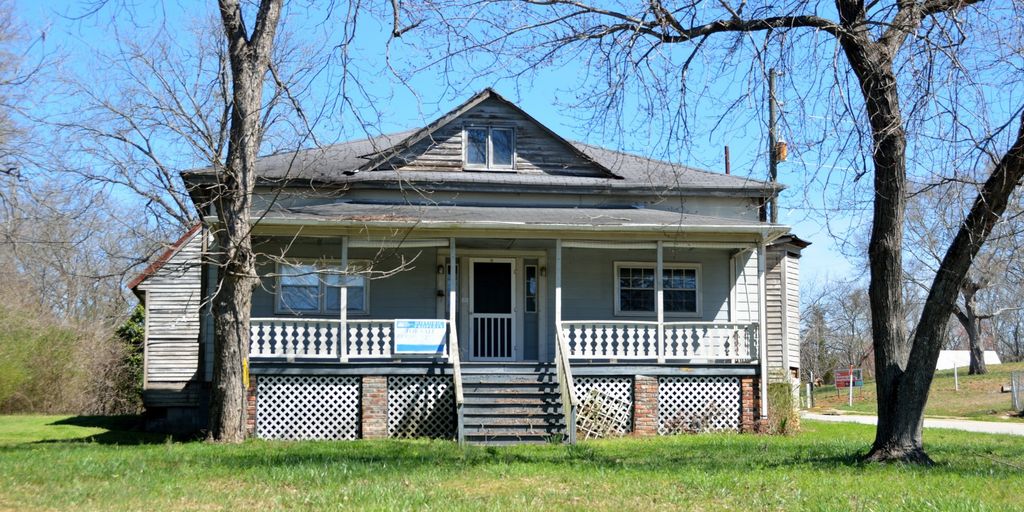Selling your house in Guadalupe can be a rewarding yet challenging endeavor. This comprehensive guide will provide you with the essential steps and strategies to ensure a quick and profitable sale. From understanding the local real estate market to effective marketing techniques, you’ll find everything you need to navigate the process successfully.
Key Takeaways
- Understand the current market trends and key neighborhoods in Guadalupe to set realistic expectations.
- Prepare your house by decluttering, making essential repairs, and staging it to attract potential buyers.
- Set the right price through comparative market analysis and consider working with a real estate agent.
- Utilize professional photography, online listings, and social media to market your property effectively.
- Be prepared for offers and negotiations, and understand the legal considerations involved in closing the deal.
Understanding the Guadalupe Real Estate Market
Current Market Trends
The Guadalupe real estate market has shown significant activity recently. For instance, the Guadalupe, Arizona housing market report for April 2024 indicated that there were 6 homes for sale, marking a 20.0% increase compared to March 2024. This uptick suggests a growing interest in the area, possibly driven by favorable economic conditions and increased buyer confidence.
Key Neighborhoods to Watch
Several neighborhoods in Guadalupe are gaining attention due to their unique characteristics and potential for growth. Key areas include:
- Downtown Guadalupe: Known for its vibrant community and cultural landmarks.
- East Guadalupe: Offers more suburban settings with larger properties.
- West Guadalupe: Popular for its proximity to schools and parks.
Seasonal Considerations
When planning to sell your house in Guadalupe, it’s essential to consider the seasonal trends. Typically, the spring and summer months see higher buyer activity, while the market tends to slow down during the winter. Aligning your sale with these trends can help you achieve a quicker and more profitable transaction.
Understanding the local market dynamics and timing your sale appropriately can make a significant difference in the outcome of your real estate transaction.
Preparing Your House for Sale
Decluttering and Depersonalizing
Start by minimizing personal items, streamlining decor, and giving every room a thorough cleaning to present your property in the best light. Declutter. When potential buyers walk through your home, they should be able to envision themselves living there. This means removing family photos, personal collections, and any items that could distract from the home’s features.
Essential Repairs and Upgrades
You may have learned to live with your home’s “quirks,” but buyers will quickly notice deferred maintenance like peeling paint or sticky doors. Addressing these issues is crucial. Focus on essential repairs and consider budget-friendly upgrades that can significantly impact your property’s perceived value. A fresh coat of paint, fixing leaky faucets, and updating outdated light fixtures can make a big difference.
Staging Tips for Maximum Appeal
Staging your home can help it sell faster and for a higher price. Here are some tips to maximize appeal:
- Furniture Arrangement: Arrange furniture to create a sense of space and flow.
- Lighting: Ensure each room is well-lit, using natural light where possible.
- Neutral Colors: Use neutral colors to appeal to a broader range of buyers.
- Curb Appeal: Don’t forget the exterior; a well-maintained lawn and a clean entrance can make a great first impression.
A well-prepared house not only attracts buyers but can also lead to a faster and more profitable sale.
Setting the Right Price
Comparative Market Analysis
A Comparative Market Analysis (CMA) is essential for determining the right price for your home. This involves researching and comparing similar properties in your area. Pricing your home competitively at the start will create more activity among brokers and buyers, leading to a more successful sale. Factors to consider include location, condition, amenities, and current market conditions.
Pricing Strategies
Overpricing your home can lead to it sitting on the market longer, costing you time and money. Sellers who FSBO must do their own research on what similar houses in their area are fetching. Look at the most recent sales you can find, and also check out the listing prices of competing properties in your area. Remember, your house will sit on the market longer if you overprice it.
Working with a Real Estate Agent
A real estate agent can provide invaluable assistance in setting the right price for your home. They have access to detailed market data and can perform a thorough CMA. Additionally, they can offer insights into current market trends and seasonal considerations. Working with an agent ensures that your home is priced competitively, aimed at generating strong buyer activity.
Accurate pricing can attract serious buyers who appreciate the upfront information, potentially leading to quicker and more favorable offers.
Marketing Your Property Effectively
Professional Photography and Videography
High-quality photos and videos are essential to make your property stand out. Buyers often form their first impression online, so investing in professional photography and videography can significantly impact your home’s appeal. Ensure that the visuals highlight the best features of your home and are taken in good lighting.
Online Listings and Social Media
List your property on popular real estate websites such as Realtor.com, Zillow.com, and Trulia.com. Additionally, leverage social media platforms like Facebook, Instagram, and Twitter to reach a broader audience. Consistent and aggressive marketing efforts online can create excitement and attract more potential buyers.
Open Houses and Private Showings
Hosting open houses and private showings allows potential buyers to experience your home in person. Make sure your home is clean, decluttered, and staged to appeal to visitors. Be flexible with scheduling to accommodate as many interested buyers as possible.
Marketing your property effectively requires a blend of online and offline strategies to maximize exposure and attract the right buyers.
Navigating Offers and Negotiations
Evaluating Offers
When evaluating offers, decide what’s most important to you. For example, an all-cash offer with a fast closing date may be better for you than a higher sales price contingent on buyers selling their current home. Understand your market — you’ll negotiate differently in a seller’s market than in a buyer’s market.
Negotiation Tactics
Once an offer has been accepted, buyers may negotiate when it comes to closing costs, transfer taxes, inspection fees, and other fees associated with the close. A buyer might also negotiate other items, like timeframes for appraisals, approvals, inspections, and the amount of earnest money deposited. Sellers should also ensure buyers are paying transfer taxes, remaining property taxes, and any legal costs associated with selling a home.
Streamlined Negotiations: With fewer surprises on the table, negotiations tend to be more straightforward. Buyers are likely to feel more secure, and you can focus on closing the deal with confidence.
Legal Considerations
An offer is a written proposal to begin negotiations on the purchase of a home. Your buyer’s agent will provide you with options in writing the offer. Many times price is not the main concern in the transaction. The response from the seller becomes a counter offer. Counter offers can often be negotiated many times. The offer becomes a contract when both parties agree to all the terms and conditions as modified during the negotiations and when signed by both the buyer and the seller.
Closing the Deal
Home inspections and appraisals are crucial steps in the closing process. A typical real estate contract specifies a date by which the closing must occur. The appraisal ensures that the property is worth the agreed-upon sales price. Quite often, a survey is also part of the lender’s requirements. Once all these steps have been taken, a time and date for the closing is set.
The closing is the event in which the money for the real estate is paid, and the title of the real estate is conveyed from the seller to the buyer. The conveyance is done by the seller signing a deed for the buyer or their agents to record the transfer of ownership. Often, other paperwork is necessary at the closing.
Closing day is so important in the house-buying process. Nobody wants to delay it! So it’s usually in everyone’s best interest to resolve any issues ahead of time. Once the deal is closed, the seller must move out and transition the property to the new owner. This includes handing over keys, garage door openers, and any other essential items.
Closing day is a significant milestone in the house-selling process. Ensuring all steps are completed smoothly can prevent any last-minute delays.
Post-Sale Considerations
Handling Taxes and Fees
After selling your house, it’s crucial to understand the tax implications. You may be subject to capital gains tax, depending on how long you owned the property and how much profit you made. Additionally, there are various fees associated with the sale, such as closing costs and agent commissions.
Investing Your Proceeds
Once the sale is complete, you’ll need to decide what to do with the proceeds. Consider consulting a financial advisor to explore investment options that align with your long-term goals. Some common options include:
- Real estate investments
- Stock market
- Retirement accounts
Feedback and Future Planning
Reflecting on the sale process can provide valuable insights for future transactions. Take note of what went well and what could be improved. This is especially important if you plan to sell another property or invest in real estate again.
Selling a house can be a complex process, but with careful planning and consideration, you can navigate it successfully and make informed decisions for your future.
Frequently Asked Questions
How can I determine the right asking price for my house in Guadalupe?
To determine the right asking price, you should conduct a Comparative Market Analysis (CMA) to evaluate similar properties in your area. Consulting a real estate agent can also provide valuable insights and help you set a competitive price.
What are some essential repairs and upgrades to make before selling my house?
Focus on essential repairs such as fixing leaky faucets, repairing damaged walls, and ensuring all electrical and plumbing systems are in good working order. Upgrades like a fresh coat of paint, modern light fixtures, and updated kitchen appliances can also add value.
How important is staging when selling a house?
Staging is very important as it helps potential buyers visualize themselves living in the space. A well-staged home can make a significant difference in how quickly your house sells and at what price.
What marketing strategies are most effective for selling a house quickly?
Effective marketing strategies include professional photography and videography, online listings on real estate websites, and leveraging social media platforms. Hosting open houses and private showings are also crucial for attracting potential buyers.
How should I handle multiple offers on my house?
When handling multiple offers, evaluate each offer carefully considering not just the price, but also the terms and contingencies. Consult with your real estate agent to negotiate the best possible deal.
What are the final steps to close the deal on my house?
The final steps include conducting a home inspection and appraisal, finalizing all necessary paperwork, and coordinating the moving out process. Ensure all legal and financial matters are settled before handing over the keys to the new owner.


